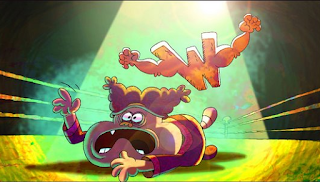Friday, August 31, 2018
Apes or Termites
It's the year 1950 and a group of scientists are on their lunch break at Los Alamos National Laboratory. The scientists are discussing aliens tongue-in-cheek -partly due to a New Yorker comic- when one of the scientists asks a question: "Where are they?" The scientist who asked that question was the Italian physicist Enrico Fermi, and his question haunts many to this day.
There are hundreds of billions of stars in our galaxy, some a good deal older than our sun, and most stars probably also have planets around them. So you'd expect that there would be at least one civilization far in advance of us out there, but evidence of such is lacking. So the question "where are they?" remains stubbornly unanswered.
I've been interested in Fermi's paradox (the name this problem has) for a number of years now. I'm not going to list ideas on this post but rather focus on a particular solution which briefly appears in the Stephen Baxter novel Manifold: Space.
Upon seeing the activities of an alien species, character Reid Malenfant remarks on how they resemble termites in a colony. Reid then speculates that most space-faring aliens will probably be cooperative (termites), rather than competitive (apes, or humans) in nature.
Think about what it means to be "ape" in nature. Much of our competitive spirit goes towards activities that are often destructive. Demanding bigger and more wasteful houses to keep up with the Joneses, building more nuclear weapons and placing them ever closer to an antagonistic country as a form of chest-beating, maximizing profit by lobbying against environmental protections, etc.
It stands to reason that a species that is "termite" in nature would be less likely to destroy itself in this way. Instead of carbon belching to "stick it to the libs" when resources are running low, members of the species would probably just consume less. The idea of nationalism would make no sense to them because it's anathema to cooperation. You see what I'm getting at.
Perhaps the truly long lived civilizations in the form of these "termites" simply don't need to explosively spread out into space. They might only deign to leave their planet when their home system is due for destruction, and then only stick to one colonizable body in a new system rather than exploiting every astronomical body in it.
I sincerely hope that this isn't the answer, it bodes quite poorly for our civilization if it is.
Wednesday, August 29, 2018
Thursday, August 23, 2018
Thursday, August 16, 2018
Wednesday, August 8, 2018
Tuesday, August 7, 2018
Boldly Going (Where Everyone Else Has Gone Before)...
I think I've spoken enough for now regarding the rather dour subject of the failures of transhumanism as an ideological force for good. Instead, here's a post that might be a bit more fun (for everyone but me that is): computer programming!
It might surprise the two people who read this blog, but I've been trying to learn programming for almost a decade now and yet I still suck at it. Why? Well... I'm not sure exactly why (if I had to guess it's a combination of a bad study environment, impatience and difficulty committing to things).
I started out trying to learn Python 3 way back in 2009, then one of the chapters in the book I was using was difficult and I "rested" for a few days, which in turn became weeks, which in turn became the abandonment of my studies.
I tried learning it again several times but each time things got difficult I would "rest" for so long that I ended up quitting each study by fiat.
And this isn't limited to Python either. I've tried JavaScript, Swift, Ruby, Gambas, Perl, C, C++, C# and shell scripting with the same outcome.
Now I'm trying to learn programming again, so far I've been keeping at it but that's not saying much in regards to past performance.
The C language was influenced by B and BCPL, which was influenced by CPL. The C language in turn parented C++, C# and D. Maybe one day, far into the future, I'll learn programming through the latest offshoot of the C family:
I'm (obviously) the one on the bottom.
It might surprise the two people who read this blog, but I've been trying to learn programming for almost a decade now and yet I still suck at it. Why? Well... I'm not sure exactly why (if I had to guess it's a combination of a bad study environment, impatience and difficulty committing to things).
I started out trying to learn Python 3 way back in 2009, then one of the chapters in the book I was using was difficult and I "rested" for a few days, which in turn became weeks, which in turn became the abandonment of my studies.
I tried learning it again several times but each time things got difficult I would "rest" for so long that I ended up quitting each study by fiat.
And this isn't limited to Python either. I've tried JavaScript, Swift, Ruby, Gambas, Perl, C, C++, C# and shell scripting with the same outcome.
Now I'm trying to learn programming again, so far I've been keeping at it but that's not saying much in regards to past performance.
The C language was influenced by B and BCPL, which was influenced by CPL. The C language in turn parented C++, C# and D. Maybe one day, far into the future, I'll learn programming through the latest offshoot of the C family:
I'm (obviously) the one on the bottom.
Subscribe to:
Posts (Atom)

